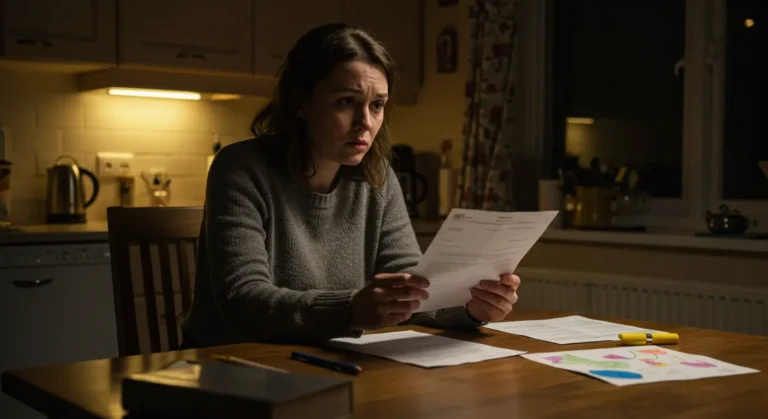Introduction
If you have ever asked yourself, “can social services use my past against me?”, you are not alone. This is one of the most common concerns for individuals interacting with the UK’s child protection or family support system. Whether it is a past conviction, financial troubles, mental health issues, or even previous involvement with child services, many worry how these events might influence current investigations.
Let us break it down in simple terms, without legal jargon, so you know exactly what to expect and how to prepare.
How Social Services Investigate Cases
When social services receive a report or concern, they follow specific guidelines set by local authorities and safeguarding laws. Their goal is not to punish your past but to protect the child’s current and future well-being.
What They Look At:
- Your current situation
- Evidence of change or risk
- Patterns of previous neglect, abuse, or instability
- Police records, health records, or school reports
So yes, your past can be examined—but only to determine if it impacts your present ability to parent or provide care safely.
Which Parts of Your Past Matter Most?
Not every mistake will count against you. Social workers look for patterns that might put a child at risk. Here are the most scrutinised areas:
Relevant History:
- Domestic violence (even if it was years ago)
- Drug or alcohol abuse
- Neglect or abuse of a previous child
- Involvement in criminal activities
- Mental health breakdowns not currently managed
But remember: positive change matters. If you’ve turned your life around, they must legally consider that too.
Common Misunderstandings About Social Services
Let us bust a few myths:
- MYTH: “One mistake means I’ll lose my child.”
FACT: They are looking for current risk, not past embarrassment. - MYTH: “They will not listen to my side.”
FACT: You have the right to share your version and evidence. - MYTH: “They can remove my child without warning.”
FACT: Immediate removal only happens in urgent risk situations and usually requires court approval.
Can Social Services Use Old Convictions or Youth Offences?
This is where it gets tricky.
Legally:
- Spent convictions (under the Rehabilitation of Offenders Act 1974) usually do not count unless the child’s welfare is at risk.
- Youth offences are weighed differently, especially if they happened many years ago.
They will ask: Does this past behaviour suggest a pattern that could repeat?
If the answer is no and you show personal growth, your history may hold less weight.
What If My Past Was Due to Mental Health or Addiction?
Many parents struggle with past issues like depression, bipolar disorder, or substance misuse. Social services will want to know:
- Are you currently getting help?
- Do you have a support system?
- Can you recognise and manage triggers?
Example:
Someone who used to have alcohol problems but is now 3 years sober, attending therapy, and maintaining a job is seen very differently from someone in active addiction.
Your Legal Rights: What Social Workers Can and Cannot Do
Knowing your rights makes a world of difference. Here’s what you need to remember:
✅ You have the right to legal representation
✅ You can request to see what is being written or reported
✅ You can ask for support plans, not just assessments
❌ They cannot remove your child without a court process (except in emergency situations)
❌ They cannot discriminate based solely on your past
Want more legal clarity? Visit the official Citizens Advice UK website for trustworthy information.
How to Present Yourself in a Positive Light
Your approach can make a huge impact. Here is how to help your case:
- Be honest but brief about past mistakes
- Show clear steps taken for improvement
- Attend meetings on time and participate
- Keep documentation: therapy records, rehab certificates, clean police checks
- Ask for character references
Proving you are stable, safe, and committed makes a strong case—even if your past is messy.
FAQs
Q1: Can social services check my past without telling me?
Yes, they can review police and medical records, especially during a child protection inquiry.
Q2: Will a caution or arrest show up?
Possibly. Even non-convictions may be mentioned if relevant to a child’s safety.
Q3: What if I was wrongly accused in the past?
You can provide evidence and explain your side. It will be reviewed alongside the facts.
Q4: Does a past abusive relationship affect how they see me now?
Not if you are no longer with that person and show steps to stay safe and independent.
Q5: Can they use mental health issues from 10 years ago against me?
Only if they believe it still affects your current parenting. Treatment history helps prove change.
Read More : How Does Equity Release Work? A Beginner’s Guide to Unlocking Your Home’s Value
Conclusion
So, can social services use your past against you? Yes—but only if it affects your present ability to keep your child safe and well. The system is designed to protect children, not punish parents. With the right support, transparency, and effort, your past does not have to define your future.

